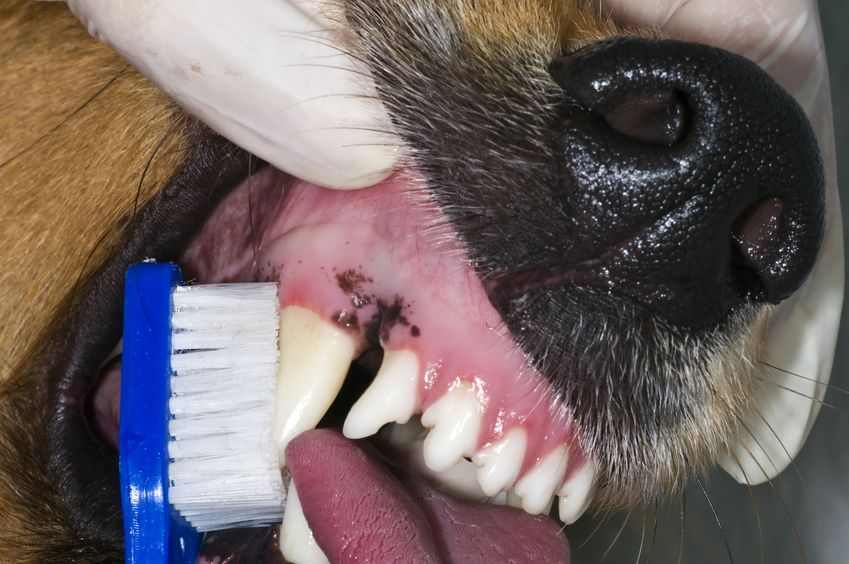Key Highlights
- Dogs stick out their tongues for various reasons, including relaxation, panting to cool down, the use of medications, and hanging tongue syndrome.
- Hanging Tongue Syndrome is a condition that can cause a dog’s tongue to hang out due to genetics or dental disease.
- Panting is a natural way for dogs to cool down their bodies and regulate their body temperature.
- If a dog’s tongue is sticking out due to relaxation or panting, it is usually harmless.
- It is important to monitor a dog’s tongue behavior and seek veterinary help if there are any concerning symptoms or signs of illness.
Introduction:
A dog’s tongue is truly remarkable. It serves many purposes, from helping them eat and drink to providing tons of slobbery kisses. While it’s normal for dogs to stick their tongues out occasionally, some dogs have a unique habit of constantly sticking their tongues out of the sides of their mouths. You may have wondered why do dogs do this. In this blog, we will explore the reasons behind why dogs stick out their tongues and what it could mean for their overall health and well-being.

Understanding Dog Behavior: Why do Dogs Stick Their Tongue Out
Dogs stick out their tongues for various reasons, and it can be a way for them to communicate certain messages. One possible reason is relaxation. When a dog is in a state of pure bliss, such as after a satisfying meal or during a relaxing moment, their tongue may hang out as a sign of contentment and exhibit the flehmen response.
Panting is another common reason for tongue protrusion in dogs. Dogs pant to regulate their body temperature, especially during physical activity or when they are feeling warm. Panting allows moisture to evaporate from their tongue and upper lip, helping them cool down through short, shallow breaths.
The Science of Panting and Cooling Down
Panting is a natural cooling mechanism for dogs. Here are some key points to understand about panting and cooling down in dogs:
- Panting helps dogs regulate their body temperature by evaporating moisture from their tongue and upper respiratory tract.
- Dogs pant more when they are physically active or feeling warm.
- Panting allows heat to escape from their body, helping them cool down.
- It’s important to provide dogs with a cool place to rest and access to fresh water when they are panting.
Relaxation Signals in Dogs
When a dog sticks out their tongue due to relaxation, it can be seen as a signal of their calm demeanor. Here’s what you need to know about relaxation signals in dogs:
- A dog with their tongue protruding while resting or lying down is often in a state of relaxation and contentment.
- The presence of a relaxed and calm demeanor is typically associated with a hanging tongue.
- This behavior is commonly observed after a satisfying meal, playtime, or when they are in a comfortable environment.
- If your dog’s tongue is only slightly sticking out and they appear relaxed, there is usually no cause for concern.

Common Causes for Dogs Sticking Out Their Tongues
While relaxation and panting are common reasons for dogs sticking out their tongues, there are some cases where it can indicate underlying health issues. Some common causes for dogs sticking out their tongues include hanging tongue syndrome, dental disease, and certain health issues.
Hanging Tongue Syndrome Explained
Hanging Tongue Syndrome is a condition where a dog’s tongue hangs out of their mouth due to various factors. Here are some key details about Hanging Tongue Syndrome:
| Column Name A | Column Name B |
| Hanging Tongue Syndrome Definition | A condition where a dog’s tongue hangs out of their mouth |
| Causes | Genetic predisposition, abnormal jaw bone, missing teeth |
| Breeds Affected | Smaller and brachycephalic breeds like Pugs |
| Symptoms | Tongue hanging out of the mouth, difficulty eating, potential oral health problems |
| Treatment | Regular dental care, potential surgery for severe cases |
The Impact of Medications on Dog’s Tongue Behavior
The introduction of new medications into a dog’s system can sometimes cause changes in their tongue behavior. If your dog is on new medication and is exhibiting this symptom or any other new symptoms or habits, it’s important to consult with your vet to ensure that this is the right medication for your pup’s system or if an alternative approach should be considered.
Some medications may have side effects that can affect tongue behavior, such as tongue protrusion or increased tongue exposure. It’s essential to monitor your dog closely and seek veterinary advice if you have any concerns about their medication’s impact on their tongue and overall health.
Health Concerns Related to Dogs’ Tongue Habits
While occasional tongue sticking out is usually harmless, it’s important to be aware of potential health concerns related to a dog’s tongue habits. The tongue is an essential part of a dog’s oral cavity, and any abnormalities or changes in tongue behavior can indicate underlying health issues. Dental problems, oral cancers, and other health conditions may manifest as changes in tongue appearance or behavior, such as Hanging Tongue Syndrome, where the tongue sticks out constantly.
Fortunately, genetics isn’t the only cause of this syndrome, and severe dental disease can also lead to the rotting of lower teeth, resulting in a lack of support for the tongue. However, with proper dental care and professional veterinary attention, most dogs with Hanging Tongue Syndrome can still enjoy a full, happy, healthy life. Being vigilant about your dog’s tongue habits and seeking professional veterinary care when necessary can help identify and address any potential health concerns early on.
Identifying Symptoms of Oral Health Issues
Oral health issues can have various symptoms, including changes in tongue behavior. Here are some common symptoms of oral health issues to watch out for:
- Bad breath
- Swelling or redness in the oral cavity
- Difficulty eating or chewing
- Bleeding or sores in the mouth
- Changes in tongue appearance or behavior, such as persistent tongue protrusion
If you notice any of these symptoms or any other concerning signs related to your dog’s oral health, it’s important to seek veterinary attention. Regular dental care and early detection of oral health issues can prevent further complications and ensure your dog’s overall well-being.
When to Worry About Your Dog’s Tongue Appearance
While occasional tongue sticking out is usually harmless, certain tongue appearances can be a cause for concern. If your dog’s tongue is consistently sticking out in an abnormal manner or there are other signs of illness, such as changes in appetite or lethargy, it’s essential to seek veterinary help. These could be signs of an underlying illness that requires medication.
Your veterinarian can perform a thorough examination and diagnostic tests to determine the underlying cause and provide appropriate treatment. Early intervention can significantly improve the prognosis for any underlying health issues, including those related to your dog’s tongue appearance and odd behavior, which could be a sign of neurological problems.
Behavioral Aspects: Tongue Use in Dogs
Apart from relaxation and health-related reasons, dogs also use their tongues as part of their natural behavior. Here are a few behavioral aspects related to tongue use in dogs:
Communication Through Tongue Movements
Dogs use various body language cues, including tongue movements, to communicate with humans and other animals. Here’s how dogs use their tongues to convey messages:
Tasting and Exploring the Environment
A dog’s tongue plays a crucial role in their ability to taste and explore their environment. Here’s how dogs use their tongues for tasting and environmental exploration:
Training and Managing Tongue Sticking Out
If your dog’s tongue sticking out becomes excessive or causes discomfort, there are ways to manage and train them. Here are some tips for training and managing tongue sticking out:
Tips for Controlling Excessive Tongue Exposure
If your dog’s tongue sticking out becomes excessive, you can take certain steps to control and manage it. Here are some tips for controlling excessive tongue exposure:
Using Positive Reinforcement to Encourage Healthy Tongue Use
Positive reinforcement is a valuable tool for training dogs and encouraging healthy tongue use. Here’s how you can use positive reinforcement to promote healthy tongue habits in your dog:
Conclusion: Why do Dogs Stick Their Tongue Out
Dogs stick out their tongues for various reasons, such as cooling down through panting and sending relaxation signals. It could also indicate health concerns like oral issues or the impact of medications. Understanding your dog’s behavior is essential to address any potential problems timely. By observing your pet’s tongue habits, you can enhance communication and training methods.
Remember, a dog’s tongue movements can convey valuable information about its well-being. Stay attentive to any unusual tongue behaviors and seek veterinary advice when necessary to ensure your furry friend’s health and happiness.
Frequently Asked Questions
Why do dogs stick their tongues out when they sleep?
During sleep, dogs may stick their tongues out due to relaxation and sleep behavior. It could be a normal occurrence or a sign of a tongue syndrome. Pet parents should monitor their dog’s sleep behavior and consult with a veterinarian if there are any concerns about their tongue sticking out.
Is it normal for my dog to always have its tongue out?
While occasional tongue sticking out is usually harmless, it is not normal for a dog to always have its tongue out. Constant tongue protrusion can be a sign of hanging tongue syndrome or other health concerns. It’s important to monitor your dog’s tongue behavior and seek veterinary advice if necessary.
How can I tell if my dog’s tongue behavior is a sign of illness?
If your dog’s tongue behavior is unusual or accompanied by other abnormal behaviors or signs of illness, it could be a sign of underlying health issues. Watch out for symptoms such as changes in appetite, lethargy, difficulty breathing, or persistent tongue protrusion. It’s best to seek veterinary advice to determine the cause of the abnormal tongue behavior.
Can certain breeds have more tongue-related issues?
Yes, certain breeds, especially smaller and brachycephalic breeds like Pugs, can have a higher predisposition to tongue-related issues such as hanging tongue syndrome. Genetic factors and abnormal jaw structure may contribute to tongue-related issues in these breeds. Pet owners of such breeds should be aware of the potential challenges and seek veterinary care if necessary.
What steps should I take if I suspect Hanging Tongue Syndrome in my dog?
If you suspect that your dog may have hanging tongue syndrome, it is important to seek veterinary care. A veterinarian can evaluate your dog’s oral health, including the size and structure of their tongue, and provide appropriate treatment or management options. Dental disease and other underlying issues may also need to be addressed to prevent severe complications.
Are there any preventive measures for oral health issues related to tongue protrusion?
Preventive measures for oral health issues related to tongue protrusion include regular dental care, maintaining good oral hygiene, and addressing any underlying health issues. Pet insurance can also help cover the cost of dental treatments and other necessary veterinary care. Consult with your veterinarian to develop a preventive care plan tailored to your dog’s specific needs.
How to Prevent Dental Disease in Dogs | Including How to Treat at Home

Dental health in dogs is crucial for their overall well-being. As pet owners, it’s important to be proactive about your dog’s dental care to prevent diseases. This involves knowing how to maintain clean and healthy teeth at home and recognizing symptoms of dental issues.
Since dogs use their teeth for various activities beyond eating, they are exposed to potential risks, such as infections or damage. Understanding preventive measures and when to seek veterinary care is key to managing your dog’s dental health effectively.
Continue reading: How to Prevent Dental Disease in Dogs
Hanging Tongue Syndrome: Causes, Symptoms, and Treatment

Hanging Tongue Syndrome is a condition that affects some dogs, causing their tongue to hang out of their mouth. While it may seem cute and endearing, this condition can actually be a sign of underlying health issues, especially in colder climates.
Continue reading: Hanging Tongue Syndrome: Causes, Symptoms, and Treatment
Recent Posts
The Importance of Heat Safety for Dogs: Understanding Heatstroke and How to Prevent It
Heatstroke is a serious condition that can occur in dogs when their body temperature becomes dangerously high, typically as a result of prolonged exposure to high temperatures or excessive physical...
Deep Dive into Canine Perspiration: Exploring the Science Behind Dog Sweating
Dogs experience heat and manage their body temperature differently than humans, primarily due to physiological distinctions in their sweat glands and other cooling mechanisms. Understanding these...


